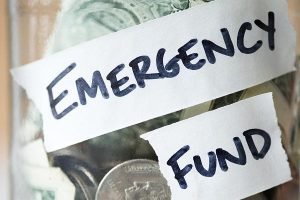 If you’re wondering how to build a portfolio, look no further.
If you’re wondering how to build a portfolio, look no further.
Financial portfolios can tell a lot about a person because they represent responsibility and dedication. Many people struggle to keep a good financial portfolio because they’re drowning in debt and continue to borrow money.
By building a portfolio, you are setting yourself up to have a future without worrying about money. The whole point of a financial portfolio is to fully fund your retirement and give you enough wealth to provide for others.
Read on to learn more about how to start a portfolio and properly invest your money.
Table of Contents
Pay Off Credit Card Debt
The first thing you can do to build your portfolio is pay off credit card debt. The problem with credit cards is that they typically have high-interest rates that increase the longer debt is held. What you should do is start tackling the debts with the highest interest.
You’ll want to pay the minimum balance on all debts so that you don’t default a payment. Focus on the debt with the highest interest until it’s completely paid off. After you’ve paid it off, move on to the next highest debt. Whenever you’ve paid off a card, stop using it. Do this until all of your credit card debt is gone.
This typically takes several years because people acquire multiple credit cards. No matter how long it takes, all that matters is that you’re working towards paying the debt off. You’ll find that you have more money in your pocket when you stop using credit cards because you won’t be making impulsive purchases.
Invest in a Roth IRA
When people are building a personal finance portfolio, they often don’t think about the Roth IRA. The Roth IRA is one of the best investments you can make because it allows you to earn a passive income providing that your annual income doesn’t exceed $137k if you’re single or $203k if married.
All of the money that you put into the Roth IRA is tax-free. When you reach the age of 59 1/2, you can withdraw all of the money and not worry about taxes. As of right now, you can contribute $6,000 per year. These contributions can be used to invest in things like stocks, bonds, etc.
This essentially means that if you purchased $10k of stocks and it turned into $5 million, you wouldn’t owe anything in taxes. The only downside is that this money is locked in the account until you reach 59 1/2 or you have to pay a 10% penalty fee and taxes.
Purchase a Home

If you look at the Antonacci Dual Momentum strategy, you’ll see that another one of the best investments is real estate. You should be saving money to make a good down payment on a house, which will play a major role in the completion of your financial portfolio. Buying a house gives you what’s known as equity.
All of the interest that you pay on a mortgage is tax-deductible, and houses typically appreciate each year. Real estate is a favorable market that many people go to when they’re trying to earn a large sum of money.
When becoming a homeowner, you should be aware that you’ll have to pay for things like utilities, property tax, and home repairs. Paying for homeowner insurance would also be in your best interest in case your home suffers damages.
Create an Emergency Reserve

An emergency reserve is crucial because it will allow you to support yourself in the event of an emergency. Emergency reserves are essential savings that will cover your basic living expenses for several months. Most people save up 3-6 months of expenses, a reasonable time for them to get back on their feet.
When you create an emergency reserve, you should have enough money to pay for the following:
- Mortgage payments
- Insurance
- Utilities
- Groceries
- Fixed payments
- Minimum payments on credit cards
Purse Various Investment Opportunities

There are a variety of investments you can add to your investment portfolio. If you open a brokerage account, you’ll have access to stocks, bonds, mutual funds, treasuries, and more. Today, most brokerages allow you to trade stocks without commission fees, so they’re more accessible than they were in the past.
Mutual funds are something you should invest in because they have accurate annual return rates. Most of the annual return rates average anywhere between 7-12%, all you have to do is put money in and let it sit.
You could also go for index funds, which are essentially the same thing as mutual funds. The difference is that mutual funds are controlled by professional stock pickers. Index funds are groups of stocks that are notable for raising in value over a period.
Start Building a Portfolio today

Building a portfolio is something that everyone should do because it puts them on the right path to build wealth. As they get older, this wealth can be used to help their families and others. Paying for your children to go to college will be easier, you won’t have to worry about retirement, and you can do more things you enjoy.
We encourage you to start putting together a financial portfolio, firstly by eliminating any credit card debt you have. This is something many people neglect, so you should make it your mission to get rid of it. After that, you can start focusing on other investments.
Browse our articles to receive more financial advice that will help you find success.